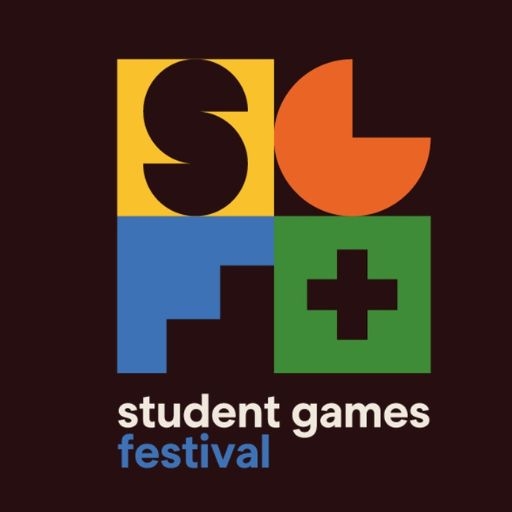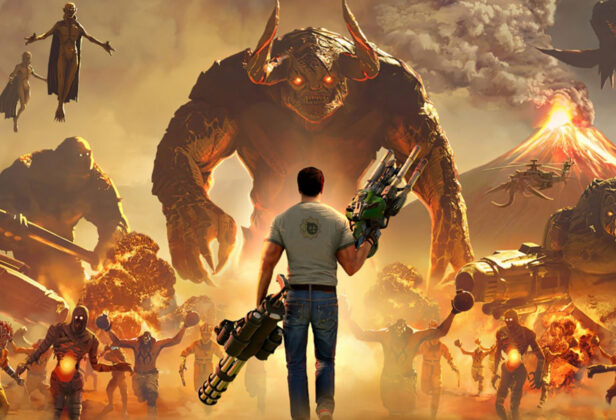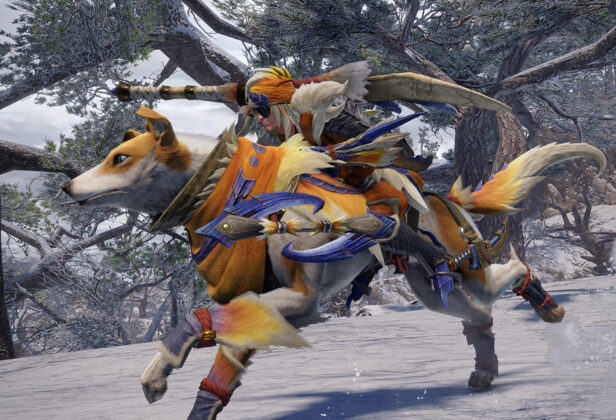Poznaliśmy program Student Games Festivalu 2025

18 października w Centrum Kreatywności Targowa przy ul. Targowej 56 w Warszawie odbędzie się Student Games Festival 2025. To wyjątkowa inicjatywa, której celem jest promocja i docenienie najlepszych gier studenckich, a także wsparcie początkujących developerów w odnalezieniu się na rynku pracy oraz integracja środowiska twórców, edukacji i biznesu.
Twórcy będą mieli niepowtarzalną okazję, by zaprezentować swoje gry szerokiej międzynarodowej publiczności, nawiązać kontakty z przedstawicielami branży, poznać innych devów i zdobyć cenne doświadczenie. W ramach wydarzenia, oprócz prezentacji samych produkcji, przewidziano wystąpienia eksperckie i panele dyskusyjne, a także konsultacje CV oraz portfolio.
Poznaliśmy pełny program Student Games Festival 2025 (wszystkie atrakcje będą prowadzone w języku angielskim).
Scena główna
10:00 OFFICIAL OPENING
10:30-11:45 Institutional Support for Emerging Game Developers in Poland
Moderator: Marek Czerniak (Indie Games Poland)
Panelists: Wojciech Trusz (Instytut Przemysłów Kreatywnych) Piotr Paradowski (Urząd m.st. Warszawa), Radosław Dubisz (Ministerstwo Kultury i Dziedzictwa Narodowego)
Representatives of the Polish government, the City of Warsaw, alongside the reprezentative of the Institute of Creative Industries will outline the types of institutional support available to Polish indie developers. The panel will also compare these mechanisms to those offered in other creative sectors, while exploring how Poland can further strengthen the global competitiveness of its game industry.
11:45-13:00 The Video Games Industry: Opportunities, Risks, and Future Outlook
Moderator: Szymon Makuch, PhD (Akademia Górniczo-Hutnicza w Krakowie)
Panelists: Pavel Barak (GDACZ), Ričardas Jaščemskas(EGDF, LGDA), Maroš Brojo (SGDA), Nenad Jovanovski (SGA), Kuba Wójcik (IGP), Aleksy Uchański (Rejected Games, Crazy Rocks)
The games industry is undergoing its most severe crisis since the 1983 “Atari shock”. Competition on digital distribution platforms is fiercer than ever, while production and marketing costs continue to skyrocket, meanwhile mass layoffs, studio closures, and cancelled projects have become a daily reality. Poland and other Central and Eastern European countries face a particular challenge: until recently, their industries competed globally while benefiting from comparatively lower domestic labor costs. This debate will assess these and other challenges shaping the future of game development.
13:00-14:00 Game Development Education in Poland and Beyond
Moderator: prof. Michał Mochocki (Uniwersytet Gdański)
Panelists: Tomasz Kaczmarek (University of the Arts London), Pavel Barak (GDACZ), Andrei Istrate (RGDA, GameDev Academy), Ria Gynther (Game Badges, Metropolia University of Applied Sciences), Adam Flamma (Uniwersytet Wrocławski)
How do universities and training programs prepare future developers for an industry that is constantly changing? What skills are most in demand today, and how do curricula differ between Poland and leading international hubs? This panel will map out the current landscape of game development education, exploring both academic and industry-driven initiatives. Participants will reflect on how education can keep pace with evolving technologies, global market needs, and the realities of studio work.
14:00-15:30 Student Games Festival: Showcase of Nominated Games
Host: Mateusz Witczak (journalist)
Participants of the Student Games Festival, the first international, independent celebration of student-made video games, will show us their projects on the main stage.
15:30-16:00 Gamebadges
Ria Gynther (LAB University of Applied Sciences, Game Makers of Finland)
In this presentation, you’ll discover how skill mapping and micro-credentials can drive growth and professional development across the European game industry. The Gamebadges project has recently launched the first-ever Competence Map – a comprehensive guide to the roles and competences required in the game industry. The project is also piloting a competence-based Open Badge ecosystem, offering a free tool for recognising and validating both new and prior learning – helping individuals, educators, and studios better align skills with real industry needs and talent matching.
16:00-17:00 GenAI: Tool, Threat, or Paradigm Shift?
Moderator: Robert Purzycki (Grail Team / L.inc)
Panelists: Adrian Perdion (Mocap.pl, Animatric), Grzegorz Prusinowski (Happy Corruption), Krzysztof Kujawski (Humanverse)
Let’s discuss the profound changes generative artificial inteligence is bringing to the games industry: from disappearing job roles and technologies that automate scripting, animation, and sound design, to the new creative opportunities it opens up for indie developers. This panel will examine both the risks and the promises of GenAI, asking whether we are witnessing a technological disruption—or a complete redefinition of how games are made.
17:00-17:30 Games for Change: How Digital Culture Can Change the World?
Tatiana Skliarenko (Games for Change)
Games have become the world’s most influential interactive medium, empowering 3.2 billion players to shape experiences, build communities, and drive change. Through their unique power of agency and connection, games transform play into a catalyst for empathy and impact. Together with Games for Change, explore how creators and innovators worldwide are proving that games can do more than entertain-they can change the world.
17:30-18.00 „Wyloguj Nienawiść”: Presentation of the Winning Game
Marta Grundland (Amnesty International), Paweł Miechowski (Kultura Interaktywna, 11 bit studios), Ewa Maria Szczepanowska (Kultura Interaktywna), Marta Fijak (Techland), Mateusz Witczak (journalist)
A few months ago, Amnesty International & Fundacja Kultura Interaktywna invited young digital artists to create meaningful video games that explain the mechanisms of hate spreading across X, Facebook, TikTok, and other VLOPs (Very Large Online Platforms). During the Student Games Festival, we will announce the best game submitted to „Wyloguj nienawiść” competition.
18:00-18:20 ZTGK Challenge – When Education Becomes Practice
Prof. Rafał Szrajber (Politechnika Łódzka/Akademia Sztuk Pięknych w Łodzi)
ZTGK Challenge (Zespołowe Tworzenie Gier Komputerowych) is a true phenomenon on the Polish scene. The Lodz University of Technology, together with its partners, has already organized 17 (!) editions of this youth gamedev competition, supported over the years by companies such as Activision, AMD, 11 bit studios, CD Projekt RED, Intel, Techland, TEYON, SUPERHOT, Bloober Team, and Render Cube. During the event, a jury composed of leading Polish game developers, academics, and journalists evaluates student teams from across the country in several diverse categories and specializations.
18:20-18:50 Get a pinch of inspiration from the Head of 11 bit studios
Host: Ryszard Chojnowski („Rysław”)
Special guest: Przemysław Marszal (11 bit studios)
Ryszard „Rysław” Chojnowski will talk to the CEO of 11 bit studios, Przemysław Marszał, head of multiple award-winning studio, about the wizardry of using imagination in making games. How to spark inspiration? How to make creativity be part of your craftsmanship? Plus, hear some anecdotes from the veteran of Polish games industry and his opinions on the games in the Student Games Festival 2025!
19:00-20:00 BEST STUDENT GAME AWARDS GALA
Host: Tadeusz „z00ltar” Zieliński (ex-journalist, industry veteran)
Musical guest: Liz Katrin
Special guests: Marta Cienkowska (Ministra Kultury i Dziedzictwa Narodowego), Karolina Zioło-Pużuk (Sekretarz Stanu w Ministerstwie Nauki i Szkolnictwa Wyższego), Rafał Rosiński (Podsekretarz Stanu w Ministerstwie Cyfryzacji), Magdalena Hajduk (Doradca Prezydenta RP, Dyrektor Biura Nowych Technologii IPN).
Warsztaty
11:00-12:00 Quick Tutorial on Gamedev Specializations
Grzegorz Wątroba (Okiem Deva, Soft Crunch Games, Pixel Ant Games)
Making games requires an astounding amount of specializations: code, art, audio, design, PR, marketing, writers and a whole lot more. It’s not easy to determine what would be the right path to follow in building a career. Grzegorz Wątroba (Okiem Deva) will provide you with a quick tutorial that will help to forge your own way in game development.
12:00-13:00 CV & Recruitment Interview – taming mythical beasts
Paweł Kamiński (11 bit studios)
The time has come – you have decided to look for a job/internship. But you’ve heard stories…. that CVs are very hard to create and there are rules to follow, but nobody knows them… and interviews are pretty hard to, they ask you what kind of animal you want to be. Good news is – this isn’t true! In this workshop, I will walk you through process of creating a CV, preparing for an interview and we will even do some quick interviews on stage.
13:00-14:00 Burnout, Mobbing and Mental Health in the Games Industry: a Practical Self-Care Workshop
Artur Ganszyniec (Uniwersytet Łódzki, OZZ Inicjatywa Pracownicza Związek Pracowników Branży Gier)
A veteran designer Artur Ganszyniec is also a part of Poland’s first game industry trade union and a support group for those facing burnout. In this practical workshop we will focus on the less glamorous sides of working in game development: what is a burnout and how to notice that you’re burning out, what constitutes mobbing, and what structural, institutional and personal means we can use to take care of ourselves and survive in the industry we love.
14:00-15:00 Video Games: Between the Arts
Moderator: Paweł Schreiber, PhD (Uniwersytet Kazimierza Wielkiego w Bydgoszczy)
Panelists: Arturas Rumiancevas (Lithuanian Game Developers Association), Andrei Isakau (Akademia Sztuk Pięknych w Warszawie), Maciej Tatarynowicz (Akademia Muzyczna im. Feliksa Nowowiejskiego w Bydgoszczy), Patrycja Wysokińska (Akademia Teatralna w Warszawie)
As an art form, video games are stretched between many different domains – they involve elements of the visual and performative arts, music and sound design, literature, film… Traditional training in the arts and conservative institutions can be reluctant to see the cultural potential of games, but the situation is changing. The panel is going to discuss how games enter fine arts and music academies, art galleries, theatres and film festivals. And how they are here to stay.
15:00-16:00 Game development as a Job: Navigating passion and labour in the current reality
Marta Fijak (Techland, Warszawska Szkoła Filmowa)
Why do you want to make games? Expressing your creativity? Never-ending puzzles to solve? Desire to tell stories? Or maybe the simplest – „It’s games, duh!”? Let’s talk about why we make games, what does it mean to do it professionally, how to get to that point, and even whether you should strive for that point. Game development is vast, not only full of coders, artists, and designers, but also lawyers, psychologists, and photographers. Where do you fit into this picture? Especially in times of great uncertainty. Disclaimer: This talk should leave you with more questions than answers – that’s good..
16:00-17:00 The art of storytelling
Moderator: Łukasz Adamski (pop culture expert)
Panelists: Barbara Kciuk (Silent Hill 2, Bloober Team), Bartosz M. Kowalski (film director), Filip Hillesland (film & game director)
What are the similarities and differences in creating engaging narratives for film and video games? Do you need a background in game development to become a game writer? What skills are essential for crafting interactive stories?
This panel also explores the secrets of emergent narrative, the intersection of film and game worlds through the lens of horror.
17:00-18:00 Unreal Engine MeetUp: Choosing the Right Engine
Moderator: Stanislav Mishchenko (11 bit studios, Unreal Engine MeetUp)
Panelists: Krzysiek „Dalton” Pachulski (One More Level), TBA
Understanding the potential (and limitations) of game engines is a key competence not only for programmers but also for a wide range of other roles within the industry. Each technology encodes a distinct creative philosophy, workflow, and vision of what game-making should be. Representatives from polish studios will outline which technology best suits your project and why. The panel will be hosted by Stanislav Mishchenko, organizer of the Warsaw Unreal Engine MeetUP.
18:00- 19.00 Gamedevowe Pogaduchy: I Made a Game… Now What?
Moderator: Jimmy Black (Gamedevowe Pogaduchy, OddQubit Studios)
Guest: Maciej Miąsik (Movie Games, Indie Games Polska)
Industry veteran Maciej Miąsik knows what it takes to pitch to investors, craft a convincing deck, secure publishers, and finance the next stage of development. Here, he shares practical advice on turning a finished game into a sustainable business opportunity.The talk is part of Gamedevowe Pogaduchy, a recurring series of gamedev meetups held in Warsaw, Kraków, and Wrocław, and will be hosted by Jimmy Black.
Debaty
10:30-11:30 Meeting of Representatives of Polish and International Universities
A dedicated session aimed at exchanging experiences between representatives of diverse educational environments and training systems. The discussion will focus on both local and international challenges, as well as on approaches and possibilities for harmonizing educational standards.
12:00-13:30 Student Clubs Debate
Moderator: Damian Gałuszka, PhD (Akademia Górniczo Hutnicza, Uniwersytet Jagielloński)
A discussion bringing together representatives of Polish student organizations active in the field of game development. The session aims to identify the needs and expectations of student initiatives toward the gamedev industry and higher education institutions. Participants will exchange experiences, share perspectives, and collaboratively map key areas for future cooperation. The results of the discussion will contribute to a post-event report summarizing insights and recommendations from the student community.
14:00-15:30 Meeting of Representatives of Polish and International Industry Organizations
Moderator: Paweł Miechowski (11 bit studios, Kultura Interaktywna)
A session dedicated to exchanging experiences between representatives of professional and industry organizations from Poland and abroad. The discussion will focus on collaboration between the creative and technology sectors and educational institutions, addressing best practices, challenges, and opportunities for strengthening the relationship between industry and academia.
Zarejestrować można się pod tym adresem. Wstęp na wydarzenie jest bezpłatny. Liczba miejsc jest jednak ograniczona.
Więcej szczegółów znajdziecie w wydarzeniu na Facebooku oraz na https://www.studentgamesfestival.com/
CD-Action jest patronem medialnym wydarzenia.


![Samsung Galaxy S26 próbuje być jak iPhone. Tylko że nie jest to komplement [RELACJA]](https://cdaction.pl/wp-content/uploads/2026/02/otwieracz-1-616x420.jpg)

![Pierwsze oceny Resident Evil Requiem. Horror Capcomu wyszedł lepiej niż Village, choć fabuła jest nierówna [RECENZJE]](https://cdaction.pl/wp-content/uploads/2026/02/resident-evil-requiem-8868-616x420.jpg)
